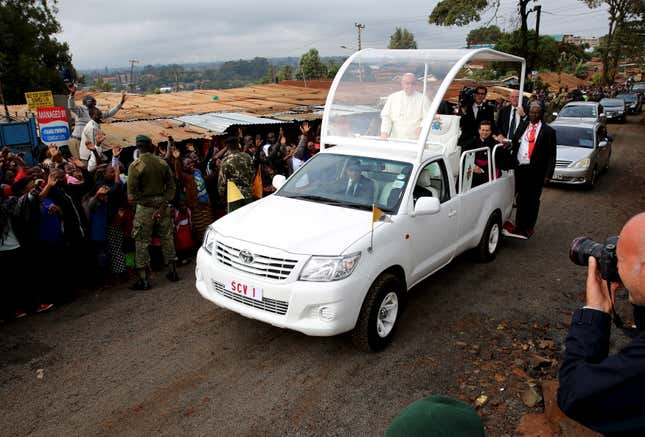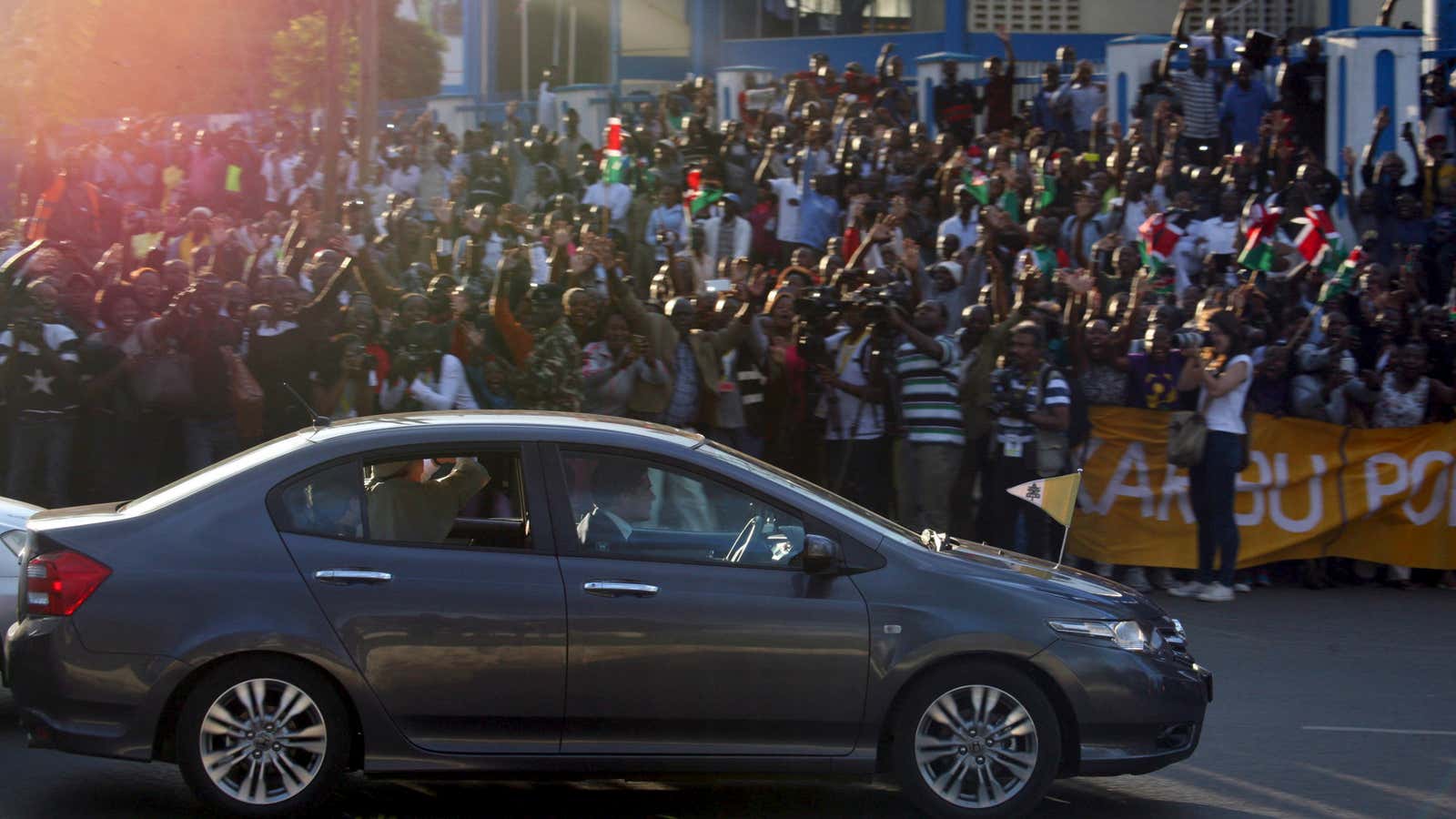African leaders will be squirming at the end of Pope Francis’s three-day Kenya visit, the first leg of his visit to Africa. At every turn, he offered a contrast to leaders’ who make no attempt to hide their wealth or understand the lives of their citizens, at least half of whom typically live below the poverty line.
The Pope earned the adoration of Kenyans when he rode from the airport Wednesday in a simple Honda sedan, a stark contrast to the luxury SUVs and limousines in which leaders here usually get around. Kenyans were already buzzing about his choice to spend a morning in Kangemi slum, visiting a part of Nairobi on his brief visit that few politicians ever venture.
But it was Thursday’s speech to youth at Nairobi’s Kasarani stadium where he really earned Kenyan fandom, making stringing remarks on corruption that eclipsed even President Barack Obama’s comments this summer.
Comparing corruption to sugar, “sweet” and “easy,” he said there’s “so much sugar that we either end up being diabetic or our country ends up being diabetic… Please don’t develop that taste for sugar which is called corruption.”
“Young people, corruption is not a path to life, it’s a path to death.”
It may not be coincidence, but there was a certain irony in the Pope’s choice of sugar as a metaphor for corruption. Kenyan defense force have been reported to be making millions of dollars from smuggling sugar into the country and thereby indirectly funding al Shabaab militants.

Kenyans had high hopes for ‘Papa Francesco’, who has built a reputation for being a champion of the poor. He arrived in Kenya amid a seemingly endless slew of corruption scandals that has left Kenyans, particularly the 46% living below the poverty line, feeling forgotten by their own leadership. A cabinet reshuffle in response hasn’t changed the sentiment much.
Speaking in metaphors and anecdotes, it was clear who the Argentine-born Pope Francis was speaking about with comments like these:
In my country a young 20-year-old dedicated himself to politics. He studied with great vigor, he went here and there, and he obtained a job. And one day he had to decide about which things he had to buy. And he asked for three quotes. He studied these three quotes and chose the cheapest, the easiest, and he took it to his boss so his boss could sign off on it and he said, ‘Why do you choose this one?’
(He replied) ‘Because you have to choose what is easiest for the finances of a country.’
‘No,’ (his boss replied) ‘you have to choose that which gives more money in your pocket.’
‘But I came to carry out politics for the good of the nation (the young man said), and the boss replied, ‘I do politics to rob, to steal.’
